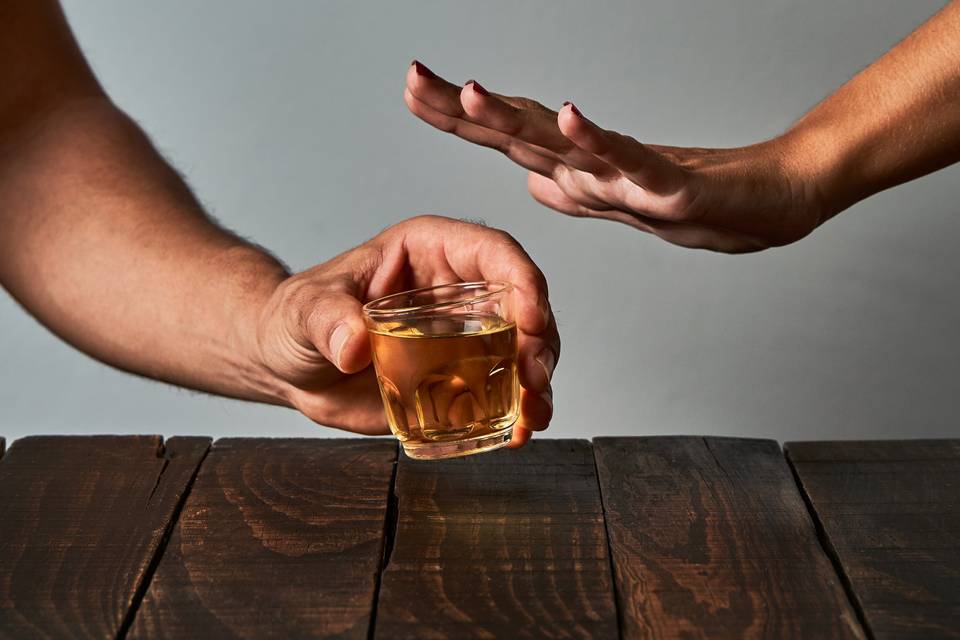5 Ways to Support Your Newly Sober Partner
Helping a partner maintain sobriety presents a unique challenge. Here, experts share their best advice as you walk this road together.


When someone you love and deeply care for is struggling with addiction, it can be immensely challenging. In fact, addiction is often seen as a family disorder because it never just affects the person struggling with the addiction, but also the person’s close family, friends and, of course, any significant other in their lives. Addiction is serious and it affects far more people than most of us realize.
According to a study funded by the National Institute on Alcohol Abuse and Alcoholism (NIAA), as many as 10 percent of American adults have experienced a drug use disorder, and about one-third of U.S. adults have struggled with an alcohol disorder. That means at least one out of every 10 people you know is or has struggled with some form of drug or alcohol addiction.
If your partner is an addict, you might have experienced shame and guilt, which may have been exacerbated by the fact that so few people are open and willing to share their experiences with addiction, notes Lira de la Rosa, Ph.D., a licensed clinical psychologist at the Hope for Depression Research Foundation in New York City. “Being in a relationship comes with many challenges and there can be unique challenges to navigate if one partner is recently working on their sobriety,” he says. “There are concerns about the person staying sober and not relapsing, worries over whether or not the partner is following through with treatment and monitoring their triggers and also lifestyle changes that come along with sobriety that can be difficult to manage as a couple.”
For a person struggling with addiction who is trying to maintain sobriety, support from those closest to them, especially their significant other, is paramount, but it’s not always easy. “As the partner, you have been a witness to your partner’s substance use and may have a lot of emotional reactions to what you experienced during this time,” he says. “This is also a significant change in your life and while you want to be supportive, it can be difficult and challenging.”
If you or someone you love is in a relationship with someone who is recently sober, here are some useful ways to help support them.
Establish healthy boundaries and expectations.
Once your partner is officially in recovery, there is a re-learning process that takes place on many levels, according to Dr. de la Rosa. “There are many things that can be neglected when a person is using substances and these problems or concerns can arise when the person is no longer using substances, so it is important to have healthy boundaries and expectations,” he says. “It is also important to work through these concerns and problems so that you can both work through them together as a couple.”
Lend a non-judgemental ear.
One of the best things you can do to support your partner going through recovery is to listen with an open mind and compassionate heart. “The partner in recovery will have intense feelings, will become aware of their own patterns, might feel remorse, and feel shame and guilt,” explains Foojan Zeine, Psy.D., MFT, clinical psychologist and Licensed Marriage & Family Therapist in San Clemente, California. “It is important to listen with empathy and welcome them in the relationship.”
Provide them with space.
Recovery takes time, which requires a lot of patience, according to Dr. de la Rosa. “There are many thoughts and emotions that individuals in recovery experience and they need time to adjust,” he says. “Our own anxiety and worries, which are valid, can negatively impact the person’s recovery and this is especially true if you don’t have a support system in place to process these worries and fears.” While it might not be easy to give your partner space while they’re recovering, it may be just what they need to get through this difficult time.
Seek out your own support.
Even though your partner is the one on the road to recovery, you very well may find that you could use some support too. “It is not easy to see a loved one go through their recovery, as it brings up a great deal of emotions,” says Dr. de la Rosa. “But if we do not process what we carry inside, we may be letting it spill out with our partners and this can hinder the relationship and recovery process.” If you are not comfortable seeking out the help of a mental health professional, don’t hesitate to reach out to your friends and family who will likely be more than happy to offer you an ear to listen and a shoulder to lean on. There are also family support groups through organizations like Nar-Anon which allow you to connect with others in a similar situation.
Stand a firm ground.
DeAnna Jordan Crosby, Psy.D. and Clinical Director at New Method Wellness, notes that there is a fine line between helping the addict and enabling them. “A good rule of thumb is to offer much support when the abuser is sober and do not continue any financial support when they are using,” she says. “Sometimes finding their way out of the darkness that comes with hitting bottom, is just the thing the abuser needs to finally seek recovery.”





